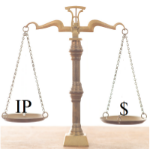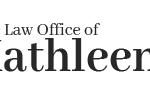
by Kathleen Lynch | Sep 10, 2014 | Invention
With the passage of the American Invents Act, the U.S. Patent System has moved from a first to invent system to a first inventor to file system. While the new law awards the patent to the first inventor, it also prevents others from obtaining an invention if you disclose your invention before someone else files an application on the same invention.
This disclosure can work to anyone’s benefit and may be used as an inexpensive offensive tool in cases where a patent is not needed, desired, or unaffordable. Disclosure of an invention prevents others from obtaining patent protection on the same invention.
If the invention is worth protecting with a patent, make sure your application is on file so that your own disclosure is not used as prior art against you.
This offensive move to disclose some developments can work in connection with a robust patent strategy. In this way, you can work to carve out an area of technology and keep others from encroaching where disclosure helps to prevent third party patents from issuing.
Protecting your innovative developments is critical to any organization. Having the right person to help you make those strategic decisions is important. The Law Office of Kathleen Lynch PLLC is designed to help businesses such as yours keep ahead of the game. The first telephone consultation is free. Email us at [email protected].

by Kathleen Lynch | Sep 2, 2014 | Intellectual Property
This week I am highlighting a recent article written by Mark Schultz and Adam Mossoff on the connection between intellectual property rights and economic prosperity. In sum, the article makes an excellent connection between the strength of a country’s IP system to that of its economy.
One could argue that a country like China that has not historically enforced intellectual property still has a strong economy. But China has made progress in their IP system and the enforcement of intellectual property rights under that system.
In general, the evidence seems to indicate that where intellectual property rights are protected, and where innovation is encouraged, the economy will grow.

by Kathleen Lynch | Aug 26, 2014 | Confidentiality, Entrepreneur, Intellectual Property, Inventor, Patent, Trade Secrets
I had lunch with a colleague who is an IP attorney and an engineer. He was telling me about his participation in a start up weekend and all of the challenges and fun that he had. In hearing this, we discussed, as patent attorneys do, the consequences of disclosing ideas to a loosely held group of people whose only relationship to each other is on the back of a napkin.
Most start up weekends do not impose any obligation of confidentiality on their attendees for all that is developed and disclosed in a 48 hour period. This raised the concern that perhaps anything that is developed that may be rather meaningful, i.e. might lead to actual commercialization of a product or service, may need to be “black boxed”. In other words, the team of developers could agree to disclose only the basic outline of the structure and/or function of the development and then disclose the details of the operation once a patent application has been filed or a confidentiality agreement has been signed.
To do otherwise may jeopardize the group’s ability to seek meaningful protection which may likely translate directly into meaningful funding. The US patent system has moved to a first inventor to file system. In that system, the inventor has a year to file on the invention developed after it has been disclosed. The rest of the world essentially requires absolute novelty. So if any invention is disclosed prior to a patent filing, any international patent rights outside the US may be lost completely. This is something worth considering when venturing into a start up weekend.
One aspect of any new development is the extent of patent protection available to the ultimate product or service. If all international patent protection is lost by the close of a start up weekend as a result of disclosure, then the level of funding and any significant patent advantage may be lost. It remains that anyone involved in a start up weekend should ask the appropriate questions regarding disclosure with the organizers and raise any concerns with the team as it could impact the protection and funding of what may be developed during the weekend.
Protecting your innovative developments is critical to any start up venture. Having the right person to help you make that decision is important. The Law Office of Kathleen Lynch PLLC is designed to help businesses such as yours keep ahead of the game. The first telephone consultation is free. Email us at [email protected].

by Kathleen Lynch | Aug 19, 2014 | Entrepreneur, Patent
I am taking a break this week in my usual focus on intellectual property law, to give a shout out to the NCLEAP program here in North Carolina. I preface this by disclosing that I am an NCLEAP volunteer and sit on their steering committee.
NCLEAP (North Carolina Lawyer Entrepreneurial Assistance Program) is about a 7 year program that was established by North Carolina lawyers to provide pro bono assistance to low income entrepreneurs. Since its inception, it has assisted over 1000 entrepreneurs and small businesses. Volunteer lawyers from across the state provide low income entrepreneurs with pro bono corporate and intellectual property law advice and other legal matters relevant to a start up venture.
NCLEAP relies on donations to operate. If you are a lawyer licensed to practice in North Carolina, consider donating your time and expertise to help out a new business or entrepreneur. If you like the NCLEAP program, consider making a donation.

by Kathleen Lynch | Aug 12, 2014 | Uncategorized
The U.S. Patent and Trademark Office (USPTO) and the Minority Business Development Agency (MBDA) are co-hosting a three part webinar series to help business owners understand the intellectual property process. The series starts today at noon.
This webinar series will teach attendees how to electronically file a copyright, patent, and trademark applications. The series will provide information, resources, and tools to protect and promote intellectual property. USPTO and Copyright Office employees will conduct the lectures.
Today’s webinar topics is about copyright filings. At noon ET, this webinar will teach you how to register your original literary, dramatic, musical expressions and artistic works electronically using the Copyright Office’s website to get a lower filing fee and quicker processing time.
Other remaining webinars are as follow:
Filing a Trademark Application Electronically – August 13 – 1 p.m. ET
This webinar will teach you how to use the Trademark Electronic Filing System (TEAS) to submit a trademark application directly through the USPTO website. Please note that the webinar will not be directed to screening marks or determining whether a mark is available for use with a particular good or service.
Filing a Patent Application Electronically – August 14 – 1 p.m. ET
This webinar is directed to teaching you how to file patent applications electronically via the USPTO’s EFS-Web (electronic filing system). The webinar will not cover patentability searches and assessments relating to whether or not your invention is patentable.
For more information visit the US Patent and Trademark Office website. Even if you have an intellectual property attorney. This may be a helpful webinar series so you can understand the application processes for some intellectual property.
Having the right intellectual property attorney to help you make decision regarding filings and the protection of your intellectual property is critical. The Law Office of Kathleen Lynch is designed to help businesses such as yours keep ahead of the game. The first telephone consultation is free. Email us at [email protected].







